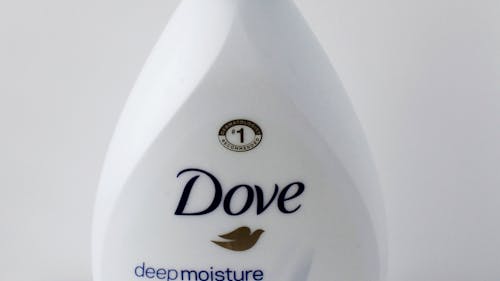Rutgers NJPIRG pushes parent company of Dove, Vaseline to publicly disclose use of toxic ingredients

The Rutgers chapter of the New Jersey Public Interest Research Group (NJPIRG) latest success has been their campaign to push the personal care company, Unilever, to disclose potentially harmful ingredients used in their products.
Unilever is the parent corporation of brands such as Dove, Axe and Vaseline.
April Nicklaus, a School of Environmental and Biological Sciences sophomore, is the chair of the Rutgers New Brunswick chapter of NJPIRG, and the secretary of NJPRIG's statewide executive board. She said that for this campaign, they joined a coalition of organizations mainly comprised of other states' public interest research groups, as well as the national U.S. PIRG.
“We don't just work on student issues,” Nicklaus said. “Students are students, but we're also human beings and citizens of the country. It's not just that we work on issues like textbooks. We also recognize that students care about things that are beyond the limits of our campus.”
Nicklaus said that previously, the list of ingredients on Unilever products was not comprehensive. Instead, the labels would list an item called “fragrance” that is itself a mix of unspecified chemicals.
Now, according to a press release from Unilever, comprehensive lists of product ingredients will be accessible through an online service called SmartLabel. Unilever's goal is to complete the SmartLabel updates by the end of 2018.
Products with SmartLabel have a Quick Response (QR) code on the package that can be scanned with any generic QR code reader in order to access the SmartLabel information. The information can also be accessed by searching for the product on the SmartLabel website.
“A lot of people are shocked at the lack of regulation for testing these chemicals or disclosing them to the consumer,” Nicklaus said. “A lot of chemicals that are frequently used as components of fragrance in personal care products are things that have been identified as carcinogens. The common thing that people may say is that there's not a lot of fragrance in the product, it's in very small amounts. But if you're putting on lotion every single day, maybe for your entire life, it adds up.”
In a press release, Dev Gowda, a U.S. PIRG toxics advocate, said that Unilever's efforts to make comprehensive ingredients lists available through the SmartLabel app are “a good first step,” but said that Unilever should provide full disclosure of ingredients on their products' packaging.
Even so, Gowda said, “This is a victory for consumer product transparency and a game changer for the personal care product industry. Other personal care manufacturers like Procter & Gamble and L’Oréal should follow Unilever’s lead and provide greater fragrance transparency.”
Unilever was initially resistant to working with the coalition, Nicklaus said. But when NJPIRG threatened to bring 25,000 petitions from across the country to Unilever's headquarters in New Jersey, the company agreed to begin negotiations.
“A petition drop attracts a lot of attention from media outlets, and it makes them look bad,” Nicklaus said. “We're not trying to make them look bad. We just want them to do good things for the consumers.”
Nicklaus said that NJPIRG often campaigns for issues that have been neglected or ignored by the general public.
NJPIRG's other current campaigns include encouraging Rutgers to sign the American College and University Presidents Climate Change Commitment, which would get the University to use 100 percent renewable energy by 2050, the open and affordable textbooks campaign and a tire recycling campaign, for which they are working with Middlesex County officials to implement tire amnesty days so that people would not have to pay to recycle old tires, she said.
Nicklaus said NJPIRG chooses what issues to pursue based off of feedback from students. At the end of each semester, NJPIRG surveys students on what issues are important to them and what they would like the organization to work on.
“When we choose the campaigns that we work on, we don't just go based off of what's sexy,” Nicklaus said. “We analyze what problems are in the world. Do people know about them? Is this in the public interest? Is anyone else working on these things? What's our specific angle for this? I would like to encourage anyone who as an issue they feel passionate about and that they think would be in line with the mission of NJPIRG to reach out to us. We do listen.”
Maxwell Marcus is a School of Arts and Sciences senior. He is a contributing writer for The Daily Targum.



